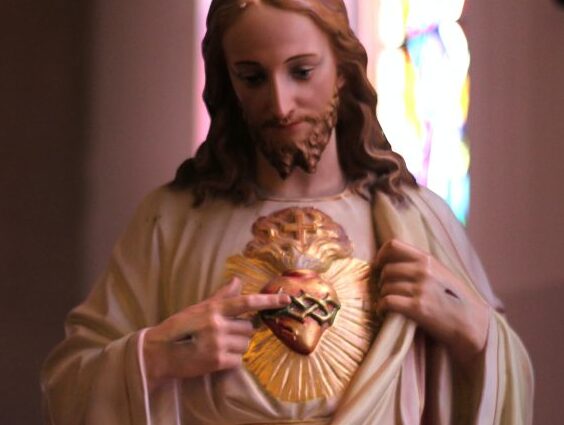We all love a good story, don’t we? There’s something so compelling about a narrative that pulls us in with a hero to root for and a villain to despise. We crave the satisfaction of seeing an injustice righted, of watching good triumph over evil. It’s a timeless theme that resonates deep within us, and it’s a framework we often bring to our reading of Scripture.
Take today’s first reading from Genesis, for example. It’s a story we know well—the fall of Adam and Eve. When we read the story of the Fall in Genesis, it’s easy to fall into the pattern of looking for the hero and the villain. But here’s the problem: if we take that stance, we might find ourselves making God out to be the villain.
But let’s pause and look deeper. The real narrative isn’t that simple. In fact, this story offers us a profound insight into our relationship with God and each other. You see, Eve had a chance to be the hero. She had the opportunity to trust in God’s command and resist the serpent’s temptation. Adam, too, had a chance to be a hero by protecting Eve and standing firm in God’s truth.
And even Satan, before his fall, had a chance. He could have chosen to follow God, to worship the incarnated Jesus, to embrace his role in the divine plan. But choices were made, and sin entered the world. Thankfully, the story doesn’t end there.
God is the ultimate hero of this narrative. He came to Adam, not in wrath, but with a question. “Where are you?” God already knew the answer, but He asked it anyway. This wasn’t an interrogation; it was an invitation. God gave Adam a chance to step forward, to speak the truth, to seek forgiveness. This was a moment for redemption. A moment for Adam to stand up tall and with integrity, instead he blames not only Eve but God himself. “The woman you gave me.”
Notice the emotions Adam experienced after the fall—fear, doubt, shame. These were new to creation. Adam and Eve had never known these feelings before. Their disobedience introduced them to a reality far removed from the harmony they once knew. And God’s question, “Where are you?” echoes through the ages, reaching out to each of us today. It’s a call to recognize our own moments of fear, doubt, and shame, and to bring them into the light of God’s mercy.
As we reflect on these readings, let’s turn our attention to the Gospel of Mark. Jesus speaks a parable about how an intruder must bind the strong man before he can plunder his house. That means if we try to do this alone, we will fail. No matter how strong we are, the spiritual battle is lost if we do not have Jesus defending our home. Jesus is the strong man who cannot be bound. He is the protector of our hearts, our minds, our conscience. A house divided against itself cannot stand, and Jesus has prepared for us a home Heaven that cannot be shaken. This is the house built on the foundation of God’s love, grace, and truth—a house where Jesus reigns as the cornerstone.
In Jesus, we see the fulfillment of God’s redemptive plan. He is the hero who cannot be overcome, the Savior who liberates us from the villainous bondage of sin and death. His life, death, and resurrection have secured for us an eternal dwelling, a house not made with hands, but eternal in the heavens.
So, what does this mean for us today? It means that our hope, our strength, and our identity must be rooted in Jesus Christ. It’s only when we remain grounded in Him as our source and summit, truly present in the Eucharist and the Sacraments, that we can truly live in the freedom God intended for us. In the Eucharist, we encounter the real presence of Jesus, the strong man who binds the evil one and sets us free.
In the Sacraments, we receive the grace to walk with God once more, just as Adam and Eve did in the cool breeze of the day. It is here, in these sacred moments, that we come back to that garden, to the intimate communion with God that we were created for.
So, my friends, let’s embrace our call to be heroes in our own right—not by our strength, but by the strength we find in Christ. Let’s respond to God’s invitation to step out of fear, doubt, and shame, and into the light of His love and forgiveness. Let’s build our lives on the unshakable foundation of Jesus Christ, our strong man, our Savior, and our Redeemer.
Father Trowbridge has graciously placed the statue of the Sacred Heart of Jesus in the sanctuary for the rest of the month of June in honor of the Feast we celebrated Friday, the Solemnity of the Sacred Heart. It is an image that we can meditate on to remind us that Jesus is truly present here. He has a merciful heart, a loving heart, a gracious heart. He seeks to encounter us and live with us in a relationship that begins with integrity and honesty, admitting our faults and seeking God’s face. His heart beats for us in the tabernacle, waiting for us, longing for us, living for us, that we in turn might live life to the fullest in Him.
Tenth Sunday in Ordinary Time
Lectionary: 89


Nicely done. Thank you, Deacon.
Thank you so much Deacon Rick, that means a lot coming from you!